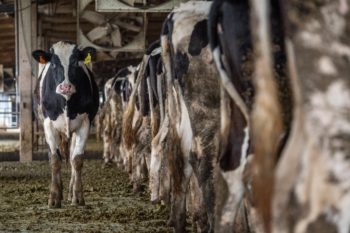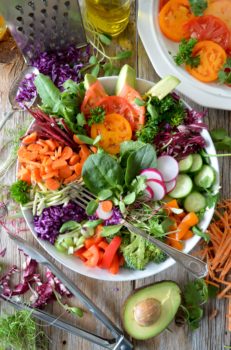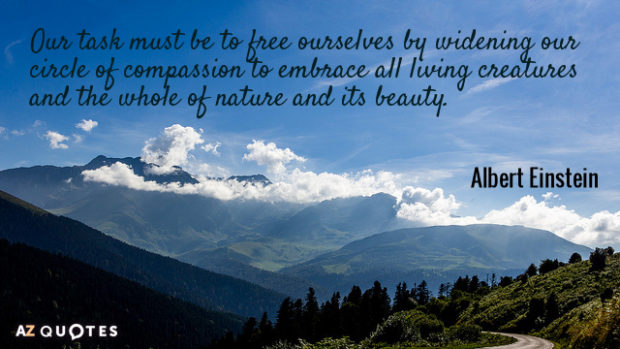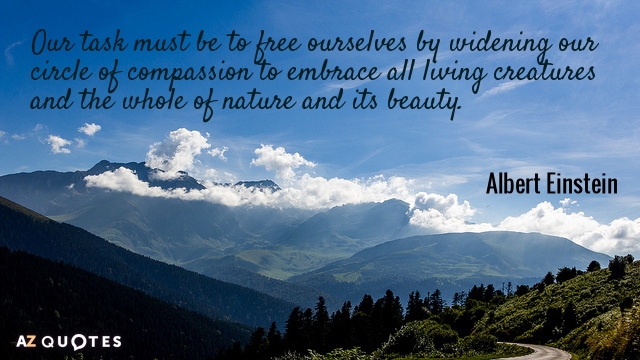posted April 18, 2023
We are wired for compassion and empathy. Despite all the news stories that display the seemingly uncaring aspects of humanity, compassion for others is part of our biological and psychological make-up.

This includes caring for animals. For most of us, it breaks our hearts to see animals being harmed or abused. We adore our companion animals, who are beloved members of the family. Yet, at the same time, we’ve been conditioned to turn away from the suffering of animals who are part of our food system. We become numb, desensitized, or blind to the inherent cruelty and suffering of this system.
For most of my life, I was blind to what happened to the animals that became my food. I didn’t allow myself to think about it, perhaps because I didn’t believe I had a choice. I thought animal-based foods were necessary for my health—after all, that is what I was taught in school, by authority figures, and in articles I read.

I’ll never forget reading Diet for a New America early on my veg journey. As the author, John Robbins, described the conditions in which farm animals lived, the slaughter process, and the health and environmental consequences of animal agriculture, I was greatly distressed. I wondered, how could I not have known this before?
I made the decision to go vegetarian, and then later, vegan, and haven’t looked back.
My heightened awareness of the plight of farmed animals has caused me emotional distress—especially when I acknowledge the scope of suffering caused by animal agriculture (i.e., about 80 billion land animals slaughtered per year globally). And yet, awakening my compassion has brought so much that is positive.
Benefits of Compassion
It turns out that compassion is not only good for those we want to help, but is beneficial for us as well. Research shows that it is linked to numerous positive psychological outcomes, such as increased happiness, greater resilience, improved mental health, and healthier relationships.
In addition, compassion toward animals can be an important indicator of how we treat other humans. There is recognition in the mental health field that animal cruelty is a predictor of violence against humans, while compassion and tenderness toward animals is associated with healthy prosocial behaviors.
What Blocks Our Compassion for Farmed Animals?
Given that compassion is beneficial, and that we are wired to empathize, what blocks our compassion for farmed animals? Below are some of the contributing factors. (For a more in-depth exploration, I recommend Dr. Melanie Joy’s book, Why We Love Dogs, Eat Pigs, and Wear Cows).
-

Photo by Andrea Lightfoot on Unsplash We often don’t see the plight of farmed animals. Most slaughterhouses and factory farms are well-hidden from public view. Further, there are ag-gag laws that aim to prevent journalists and activists from taking photos or videos inside these facilities.
- We are raised and conditioned to develop relationships with certain types of animals, but not others. For example, we are taught to care about the birds who visit our bird feeders but not to think about chickens or turkeys raised for food.
- We learn to dissociate animal “products” (e.g., a package of meat in the supermarket) from the living, sentient beings they once were.
- Our educators, doctors, parents, leaders, and other authority figures have instructed us that we need meat and dairy to thrive.
- It can be painful to connect with our compassion and to witness the suffering of others.
So, How Do We Awaken Compassion?
Visit a farm sanctuary (and invite others to join you)
Visitors discover firsthand that these sentient beings have personalities, intelligence, feelings, social relationships, and preferences (just as our companion animals do).
Be a positive and healthy vegan role model

Once people learn it is possible to thrive with a plant-based lifestyle, it is easier to open to compassion for the sentient beings in the food system.
Be compassionate to yourself
It can be challenging to connect with the pain and suffering of animals—sometimes it can feel like too much. Include yourself in your circle of compassion. Prioritize healthy self-care, build a good support system, and learn sustainable ways to act on your compassion.

Reconnecting with my natural compassion was one of the greatest gifts that being Vegan has given me. Experiencing compassion for all sentient beings brings more meaning and fullness to our human experience—and moves us toward creating a healthier and kinder world where all can flourish.

Angela Crawford, Ph.D. has 25 years of experience as a licensed psychologist. Since becoming Vegan, she has been passionate about sharing the benefits of a plant-powered, Vegan lifestyle for human health and mental health, the planet, and caring for all sentient beings. She holds certificates as a Master Vegan Lifestyle Coach and Educator through Main Street Vegan Academy and in plant-based nutrition from the T. Colin Campbell Institute for Nutrition Studies at e-Cornell.
Dr. Crawford offers coaching programs to support women to emotionally thrive with a Vegan lifestyle and to express their unique voice and purpose, and is working on a book about the transformative impact of a Vegan lifestyle. She serves as a Psychology Advisor for WeDIDIt.Health and Psychology Expert for Compassion Rising. She can be reached through her website or on LinkedIn.

